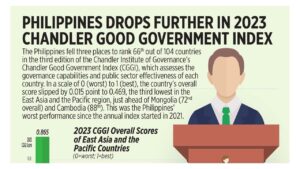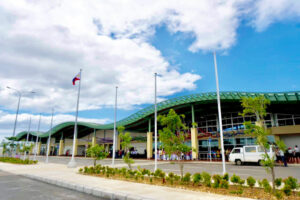Back-office services seen benefiting from EU-PHL free trade agreement

By Justine Irish D. Tabile, Reporter
A FREE trade agreement (FTA) between the Philippines and the European Union (EU) is expected to attract more European business for industries like information technology and business process management (IT-BPM) as well as financial and digital service providers, a business council official said.
Chris Humphrey, executive director of the EU-ASEAN Business Council (EU-ABC), told BusinessWorld that the Philippines currently enjoys a competitive advantage in its English-speaking population, which is deemed critical in IT-BPM services.
“I think you’re extremely well placed in the Philippines to provide more back-end office solutions for companies. Whether it’s call centers, data centers, or anything else in that vein, you have an excellent track record in this space,” Mr. Humphrey said.
“More companies around the world are looking to outsource some of their back-end requirements and some solutions. And I think with this FTA in place, it will open up the services sector even further. Again, that will put you in an excellent position to take advantage,” he added.
Aside from IT-BPM services, he said that the FTA could also attract EU companies to look into establishing a Philippine presence in financial and digital services.
“I think financial services are always attractive to the EU. And the Philippines being part of ASEAN means it’s going to be a good place to do business for the rest of the region as well,” Mr. Humphrey said.
He added that being part of the Regional Comprehensive Economic Partnership would also be attractive going forward.
“There is a lot of need, I think, in the digital economy space as well, for European businesses to want to come in and be attracted to using the Philippines as a springboard for the rest of the region,” he said.
“The Philippines sits in a region with 650 million people and a growing digital economy — a really fast-paced growth in the digital economy — and that has to be attractive,” he added.
Google, Temasek Holdings, and Bain & Co. projected the Philippine digital economy to grow to between $80 billion and $150 billion in gross merchandise value by 2030.
The EU and the Philippines announced the resumption of negotiations for an FTA in March. An FTA is expected to grow bilateral trade by 6 billion euros.
Last year, the Philippines saw a 17.4% increase in exports of services to $48.29 billion, which brought combined services and goods exports to $103.6 billion despite a 4.1% decline in the export of goods.
The Philippine Economic Zone Authority (PEZA) said that the IT-BPM industry accounts for 60%, or 1.1 million direct jobs generated within the economic zones (ecozones). In general, the sector also accounts for over 20% of gross domestic product.
“With IBPAP aiming to create a total of 2.5 million new jobs by the end of the Marcos administration in 2028, PEZA can commit at least 60%-70% of this 6-year target,” PEZA Director General Tereso O. Panga said in a statement on Sunday.
“As long as the Philippines remains a competitive investment destination, we can continue to draw more foreign direct investment that will set up facilities in the ecozones to provide goods and services for the global market,” he added.




